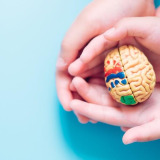Weaning My Baby – Tips, tricks and Things to Know
08/01/2024

Babies grow up so fast and sooner or later you are going to need to think about weaning. This can be a bit of a process, but we are here to provide a bit of information on how to get going on this part of the journey.
Read on!
When to start to wean my baby?
As stated on the NHS site you can start to introduce solid food to your infant at around six months old. At this age they will still be getting most of their nutrients from breastmilk and/or infant formula but you can start to test the waters with some proper food.
The reason you want to wait until this age is simply because your baby is better prepared to handle solids. They will have some coordination to be able to pick food up and chew food. At this stage, they may even be able to process flavours and textures.
You may be wondering how you can tell your baby is ready.
Consulting doctors and midwives can help but there are also three clear signs you can look out for.
-
Staying sat up
-
Co-ordinated eyes, hands, and mouth
-
Swallow foods when offered rather than spitting them out
You will also still want to breastfeed or use formula as you begin to wean.
If you notice your baby wanting more food or chewing their hands these are not indicators of being ready for solid food. These are normal baby behaviours and anything that concerns you should be taken to a professional.
Early Weaning
Early weaning is not recommended. You can start earlier than six months, but it is better to wait for all the signs. However, you should never start before four months old. Your baby’s digestive system needs to mature enough to handle the food.
To help you understand what foods can be eaten, and at what age, many pre-packaged baby foods available to buy will include a ‘from’ age, indicating from which age you can start to introduce different foods and textures.
How do you start to wean a baby?
There are some do’s and don’ts to keep in mind.
Weaning will take a lot of patience. Your baby is going to take time to suss out foods that aren’t just fluid… a lot of your earlier attempts may end up on the floor! Relax, baby needs to take their time so don’t rush anything. Let them explore.
It’s a good idea to prepare a dedicated feeding area, like a chair at the table. Ensure it is stable and consider laying a mat on the floor to catch any rejects! Get weaning spoons, bowls and have plenty of bibs and wipes ready to go.
Stay with your baby. Seems obvious but you will want to keep an eye on them just to ensure they don’t choke or have an adverse reaction to any new foods.
Don’t add food to their bottles. This poses a choking hazard. You may also damage their teeth by doing this. This, again, may seem obvious but there can be a temptation to help the process along by adding soft food in with milk or water. It is best to keep food and liquid separate.
You can use a combination of pre-prepared weaning foods from the shop and home-cooked options. You want your baby to get used to home-cooked food, so they know the flavours and textures but if you need to occasionally use something shop bought ensure you follow any instructions on the packaging.
If you’re going down the home-cooked route, look at getting a good blender to puree and blend the meals you prepare, and a specialist weaning ‘ice cube’ tray to store extra food in the freezer, so that you have a nutritious meal ready to go at the drop of a hat.
If your little one really starts to enjoy finger foods, you can start to try spoon feeding too. Help them guide the spoon from the food to their mouth with lots of positive encouragement.
What foods should I introduce to my baby?
If you are a bit stuck on what foods to get started on here is a list for you based on information from the Baby Centre:
-
Soft Veggies – cooked and cooled vegetables such as carrots, parsnips, potatoes, broccoli, cauliflower, sweet potato, and butternut squash.
-
Soft fruits – such as small pieces of things like melon, peaches, banana, segments of orange, grapes, and avocado.
-
Cooked meat – such as soft, small pieces of chicken and fish.
-
Full-fat dairy products – you can start to introduce dairy products but don’t go for too much too soon. Your baby might not be able to properly digest lactose yet.
-
Starchy food – rice, bread and unsalted crackers.
-
Beans and pulses – these can be an excellent source of protein. These are just a few ideas but as you can see it is mostly soft, gentle foodstuffs.
What foods should I not introduce to my baby?
On the opposite side, there are foods to avoid, especially during early weaning.
-
Overly sugary snacks – they can cause tooth decay.
-
Overly salty foods – things like bacon, sausage, salted crackers etc. At this age, too much salt isn’t good for your baby’s kidneys.
-
Soft cheeses that contain listeria – these include brie, blue cheeses, and unpasteurised cheeses.
-
Honey – contains ingredients that can cause infant botulism (symptoms of which can be found on the KidsHealth site).
-
Raw shellfish
-
Fish that contains higher levels of mercury.
-
Whole nuts and peanuts – crushed and flaked nuts or smooth peanut butter is okay but whole nuts are a choking hazard.
-
Fresh pate – meat, fish and veggie pates can cause food poisoning.






